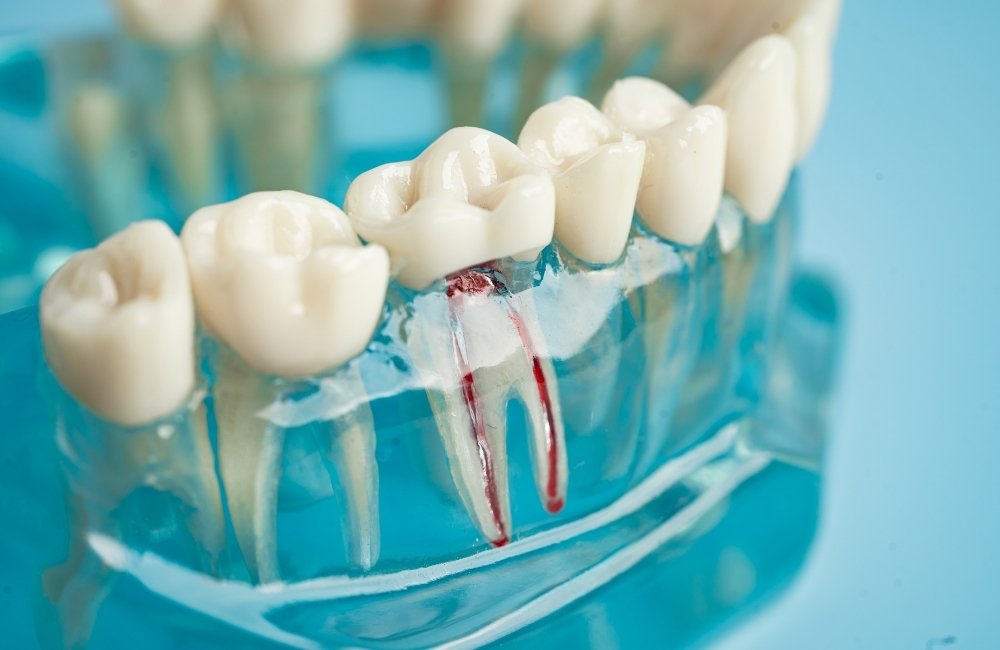Why Is Root Canal Treatment Important For Saving A Damaged Tooth?

Tooth pain can feel overwhelming. When a tooth is badly damaged, many people assume it must be removed. But that isn’t always true. Root canal treatment offers a way to save natural teeth, even when they are deeply infected or decayed. Instead of pulling the tooth out, this treatment cleans and protects it from further harm.
Saving your natural teeth is always better than replacing them with artificial ones. Plus, root canal treatment helps maintain your chewing ability and natural smile. This blog explores why this treatment matters, how it helps, and why it may be the best option when a tooth is at risk.
What Happens to a Tooth That Needs a Root Canal?
A tooth may need a root canal when its pulp becomes infected or inflamed. This part of the tooth holds nerves and blood vessels. When the pulp is infected, it can cause pain and swelling. If not treated, the infection can spread and damage nearby tissue or bone.
Several things can cause this problem:
- Deep decay that reaches the inner part of the tooth
- Cracks or chips that allow bacteria inside
- Repeated dental work on the same tooth
- Injury to the tooth, even without a visible crack
Root canal treatment Minneapolis removes the infected pulp. Then, the area is cleaned, sealed, and protected with a crown or filling. This process stops the pain and saves the tooth from extraction.
How Root Canal Treatment Helps Save a Tooth?
Saving a natural tooth is better than replacing it. Natural teeth support your jaw, help you chew, and feel more comfortable than artificial options.
Here’s what root canal therapy can do:
- Stops infection from spreading to other parts of the mouth
- Gets rid of pain caused by inflammation or pressure inside the tooth
- Helps avoid the need for tooth removal and costly implants or bridges
- Keeps your bite aligned by preventing neighboring teeth from shifting
When done early, a root canal prevents more serious dental issues. You’ll keep your tooth and avoid problems with chewing or speech. This makes it a valuable solution for long-term oral health.
Why Is Root Canal Better Than Tooth Extraction?
Pulling a tooth may seem like a quick fix, but it often leads to other problems. A gap in your smile can affect your appearance and cause the surrounding teeth to shift. This makes your bite uneven, which can strain your jaw.
Compared to extraction, root canal treatment:
- Preserves the tooth’s natural look and function
- Avoids bone loss that often follows tooth removal
- Saves time and money by avoiding implants or dentures later
- Maintains normal chewing and speaking ability
Tooth loss can lower your confidence and impact your daily life. A root canal helps avoid that while still treating the damage.
The Process Is Not as Painful as Many Think
Many people fear root canals. But today’s dental tools and methods make the process far less painful than in the past. In fact, most patients say it feels no worse than getting a filling.
Here’s what usually happens:
- Your dentist will numb the area to keep you comfortable
- A small opening is made in the tooth to reach the pulp
- The infected tissue is cleaned out completely
- The root canals are shaped and disinfected
- The tooth is sealed and covered with a crown or filling
The goal is to keep the tooth strong and healthy. Once healed, you can use your tooth like before, with no pain or worry.
Long-Term Benefits of Keeping Your Natural Tooth
Keeping your natural teeth helps you avoid many future issues. Artificial teeth don’t always feel natural and often need replacements over time. A saved tooth, on the other hand, can last a lifetime with good care.
The long-term benefits include:
- A more natural bite and chewing function
- Less need for extra dental visits or procedures
- No extra stress on nearby teeth
- Better overall mouth health
Also, when you keep your natural teeth, you avoid many of the problems linked to bone loss and gum shrinkage.
What Happens If You Ignore the Need for Treatment?
Delaying treatment can cause serious complications. The infection can spread to the jaw or even enter your bloodstream, creating health risks beyond the mouth.
Without timely care, you may face:
- Severe tooth pain that gets worse
- Abscess formation, which causes swelling and fever
- Damage to nearby teeth or gums
- Total tooth loss and costly replacement needs
Root canal treatment isn’t just about fixing a tooth—it’s about saving it. When a tooth is damaged by decay or trauma, this treatment gives it a second chance. And with today’s gentle methods, there’s little to fear.
You get to keep your real tooth, stay pain-free, and avoid future dental work. That’s why so many dentists recommend this option before considering extraction. It’s a smart step toward better oral health.
Are you having tooth pain or signs of infection? Talk to our dentist about whether a root canal might help save your smile.
